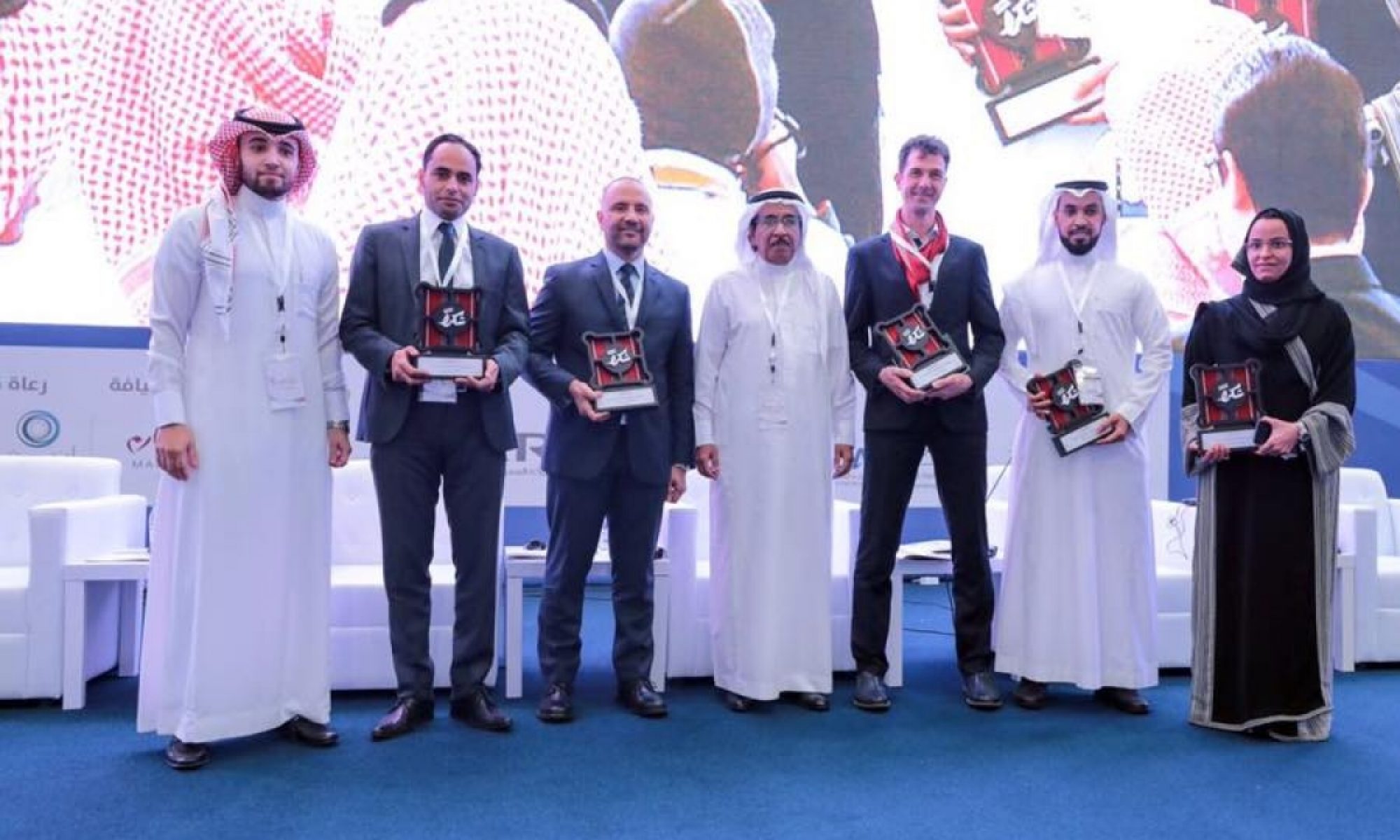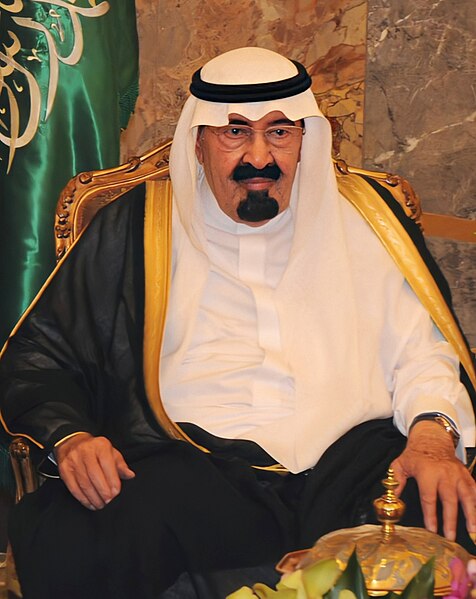
In the intricate tapestry of Saudi Arabian history, the reign of King Abdullah bin Abdulaziz Al Saud stands as a transformative chapter characterized by comprehensive reforms and a visionary approach to global leadership. Ascending the throne in 2005, King Abdullah’s era heralded an era of significant change, both domestically and on the international stage. This blog aims to delve into the life, achievements, and lasting impact of King Abdullah – a reformer and statesman whose legacy resonates through the corridors of modern Saudi Arabia.
Domestic Reforms:
King Abdullah’s commitment to modernization and societal progress was evident in a series of domestic reforms. Initiatives aimed at enhancing education, healthcare, and infrastructure underscored his dedication to improving the quality of life for Saudi citizens. His focus on building a knowledge-based society laid the foundation for Saudi Arabia’s future development.
Women’s Empowerment:
One of the hallmark achievements of King Abdullah’s reign was the advancement of women’s rights. He introduced initiatives to enhance women’s participation in various sectors, including education, healthcare, and the workforce. The appointment of women to key government positions marked a significant stride toward gender inclusivity.
Economic Diversification and National Transformation:
King Abdullah recognized the need to diversify the Saudi economy beyond oil dependency. The launch of the King Abdullah Initiative for Saudi Agricultural Investment Abroad and the Saudi Arabian General Investment Authority (SAGIA) reflected his commitment to economic diversification and attracting foreign investments.
Educational Reforms and Scholarship Programs:
Building on the importance of education as a catalyst for progress, King Abdullah expanded scholarship programs to send Saudi students abroad for higher education. This initiative aimed to cultivate a globally competitive workforce equipped with the skills needed for a rapidly evolving world.
Interfaith Dialogue and Cultural Exchange:
King Abdullah was a proponent of interfaith dialogue and cultural exchange. He initiated efforts to foster understanding and collaboration among different religions and cultures, contributing to a more interconnected global community. The establishment of the King Abdullah International Center for Interreligious and Intercultural Dialogue reflected this commitment.
Regional Diplomacy and Leadership:
King Abdullah played a crucial role in regional diplomacy, contributing to stability in the Middle East. His efforts to mediate conflicts, including the Lebanese political crisis and the Israeli-Palestinian conflict, showcased Saudi Arabia’s commitment to peace and regional stability.
Philanthropy and Humanitarian Initiatives:
King Abdullah’s philanthropic endeavors extended beyond Saudi Arabia’s borders. The King Abdullah bin Abdulaziz Humanitarian Foundation and the Kingdom’s active role in international humanitarian efforts demonstrated a commitment to alleviating global suffering and addressing humanitarian challenges.
Infrastructure Development and Urban Planning:
The reign of King Abdullah witnessed continued investment in infrastructure development and urban planning. Mega-projects such as the King Abdullah Economic City and the King Abdullah Financial District showcased a commitment to modern urbanization and economic growth.
Environmental Conservation and Renewable Energy:
Recognizing the importance of environmental sustainability, King Abdullah championed initiatives for conservation and the development of renewable energy sources. Projects like the King Abdullah Initiative for Saudi Arabia’s Renewable Energy City reflected a forward-looking approach to environmental stewardship.
Global Leadership and G20 Participation:
King Abdullah’s global statesmanship was further exemplified by Saudi Arabia’s active participation in international forums. Under his leadership, the Kingdom became a member of the G20, reinforcing its role as a key player in global economic governance.
Conclusion on King Abdullah’s Enduring Legacy:
King Abdullah bin Abdulaziz Al Saud’s legacy is one of far-reaching reforms, global diplomacy, and a commitment to progress. As Saudi Arabia continues its journey in the 21st century, King Abdullah’s enduring influence serves as a guiding light for leaders navigating the complexities of a rapidly changing world. His visionary approach to reform and global statesmanship has left an indelible mark on Saudi Arabia’s trajectory, embodying the spirit of a leader who sought to propel his nation into a future of prosperity, inclusivity, and global collaboration.
King Abdullah bin Abdulaziz Al Saud: Pioneer of Reform, Global Visionary, and Architect of Saudi Arabia’s Future
Technology and Innovation Hub:
King Abdullah’s reign witnessed a significant push towards technological innovation. The establishment of technological hubs, research centers, and investment in the information technology sector marked a commitment to positioning Saudi Arabia as a leader in the digital age. Initiatives such as the King Abdullah City for Atomic and Renewable Energy underscored the Kingdom’s commitment to technological advancements.
National Transformation Program (NTP) and Vision 2030:
Building on earlier economic diversification efforts, King Abdullah played a crucial role in the development of the National Transformation Program and Vision 2030. These ambitious initiatives aimed at further diversifying the Saudi economy, promoting private sector growth, and positioning Saudi Arabia as a global investment powerhouse.
Crisis Response and Humanitarian Leadership:
King Abdullah’s leadership was particularly prominent during times of crisis. His swift response to natural disasters, such as the Jeddah floods in 2009, demonstrated a commitment to the welfare of the Saudi population. Moreover, King Abdullah’s active role in humanitarian efforts during international crises showcased Saudi Arabia’s dedication to global solidarity and assistance.
Anti-Corruption Initiatives:
King Abdullah took a strong stance against corruption, initiating anti-corruption measures to ensure transparency and accountability within the government. These efforts were aimed at fostering a culture of integrity and accountability, contributing to the Kingdom’s governance reforms.
Interconnected Transport Infrastructure:
Recognizing the importance of a well-connected nation, King Abdullah spearheaded major infrastructure projects, including the expansion of the railway network and the development of a modern transportation system. These initiatives aimed to enhance connectivity within the Kingdom and support economic growth.
Art and Culture Renaissance:
King Abdullah’s reign saw a revival of the arts and cultural expression in Saudi Arabia. Efforts to promote cultural festivals, literature, and the establishment of cultural institutions reflected a commitment to preserving and celebrating Saudi Arabia’s rich cultural heritage while embracing modern expressions.
Educational Exchange Programs:
To foster intellectual exchange and promote global understanding, King Abdullah initiated educational exchange programs. These programs facilitated the exchange of students and scholars between Saudi Arabia and prominent international universities, contributing to cross-cultural dialogue and knowledge sharing.
Sustainable Development and Environmental Initiatives:
King Abdullah’s commitment to sustainable development extended to environmental conservation. His administration launched initiatives to address environmental challenges, including water conservation projects and campaigns to raise awareness about the importance of preserving the Kingdom’s natural resources.
Public Health Initiatives:
King Abdullah prioritized public health, evident in initiatives aimed at improving healthcare infrastructure, disease prevention, and response capabilities. His administration’s focus on public health contributed to the Kingdom’s ability to address health challenges effectively.
Cultural Diplomacy and Soft Power:
Recognizing the influence of cultural diplomacy, King Abdullah actively promoted Saudi Arabia’s cultural heritage on the global stage. The establishment of cultural centers and international exhibitions showcased the Kingdom’s commitment to using soft power as a means of fostering understanding and appreciation.
Continued Philanthropy and Humanitarian Efforts:
Even after his passing in 2015, King Abdullah’s philanthropic legacy endures through ongoing humanitarian efforts. The King Salman Humanitarian Aid and Relief Centre, established in 2015, continues to carry forward the commitment to global humanitarian causes, reflecting the enduring impact of King Abdullah’s vision.
Conclusion on King Abdullah’s Legacy:
King Abdullah bin Abdulaziz Al Saud’s legacy is a multifaceted tapestry of reform, innovation, and global engagement. As Saudi Arabia continues to navigate a rapidly changing world, the enduring influence of King Abdullah’s visionary leadership serves as a guiding force for the nation’s pursuit of progress, inclusivity, and a prominent role on the global stage. His legacy stands as a testament to the transformative power of a leader dedicated to steering a nation towards a future of prosperity, sustainability, and international collaboration.
Visit Saudi Arabia Destinations Now
Here are some of our Saudi Arabia private tours, offering you the opportunity to embark on a captivating journey through the Kingdom of Saudi Arabia. Immerse yourself in the rich history of Saudi Arabia as you explore ancient wonders in cities like Riyadh, Jeddah, and Mecca. Discover the archaeological marvels of Al-Ula, with its UNESCO-listed Madain Saleh, and stroll through the traditional streets of Al-Ula Old Town. Experience the highland haven of Abha, nestled in the Asir Province, where you can explore Asir National Park and the historic village of Habala. Take in the breathtaking views at Al-Soudah Park and witness the natural beauty that defines the diverse landscapes of this enchanting kingdom. Whether you’re drawn to the historical charm of Riyadh or the mountainous landscapes of Abha, our Saudi Arabia private tours promise “A Trip to Remember.”
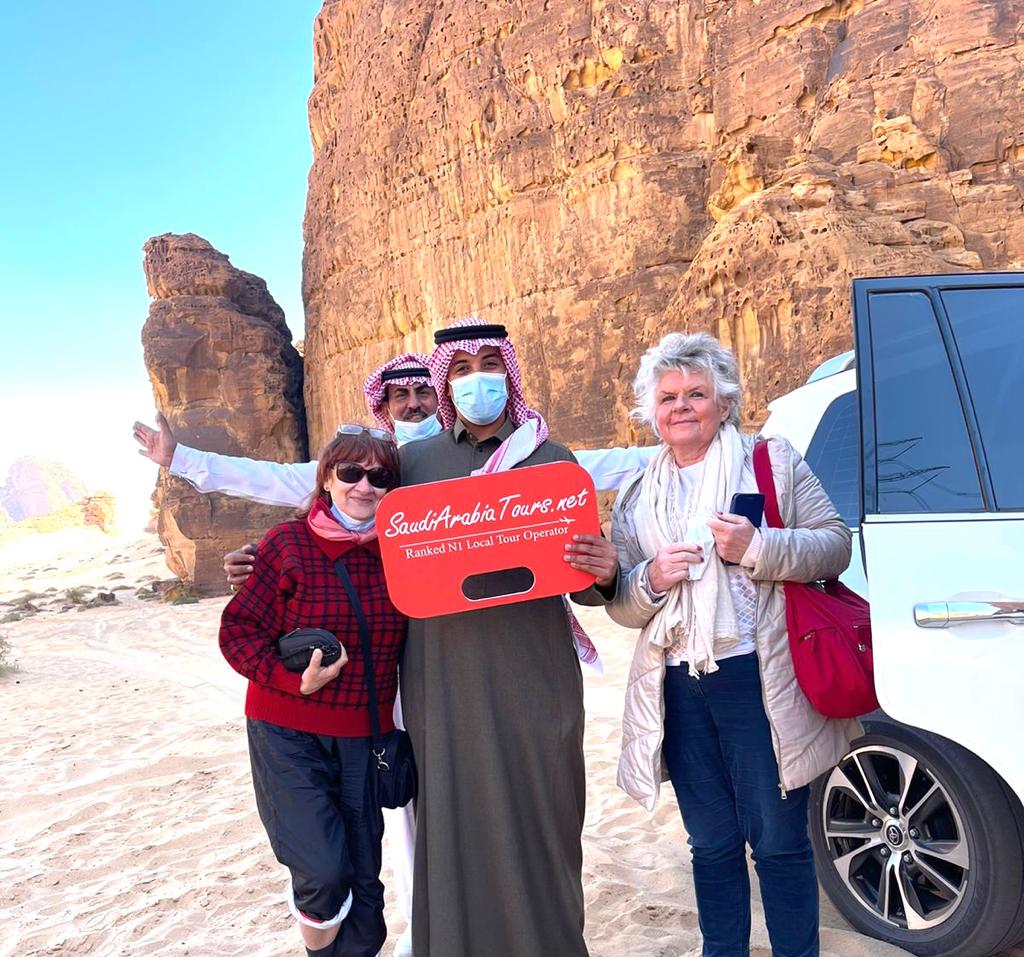
4 Days Riyadh Heritage Tour Package
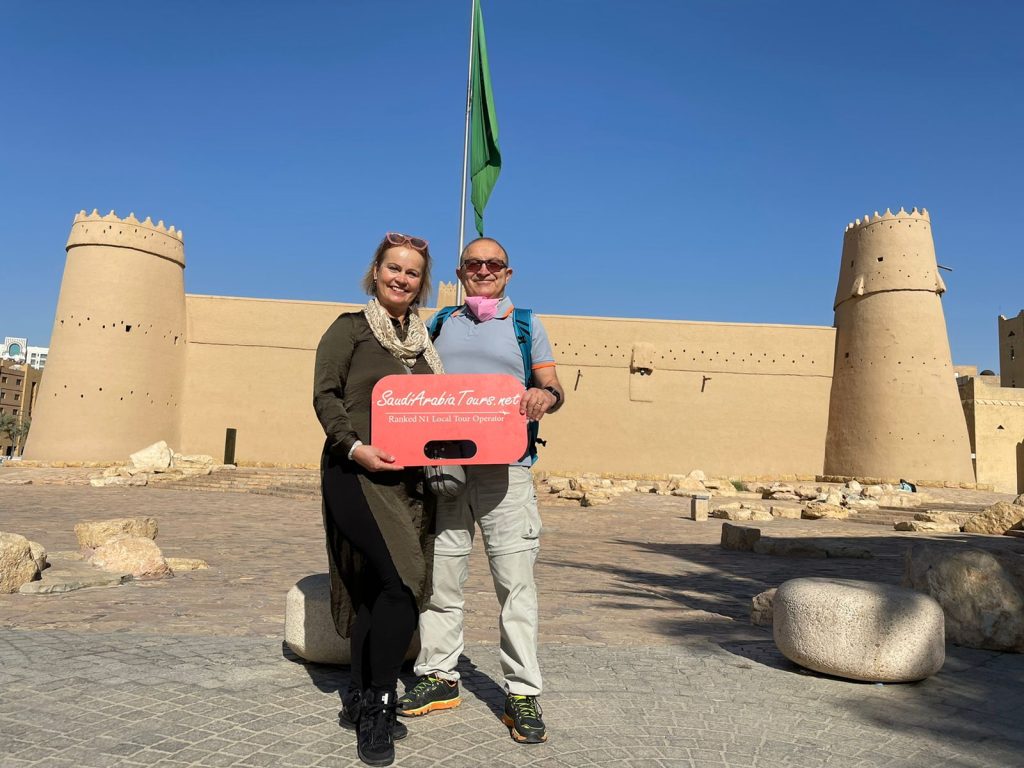
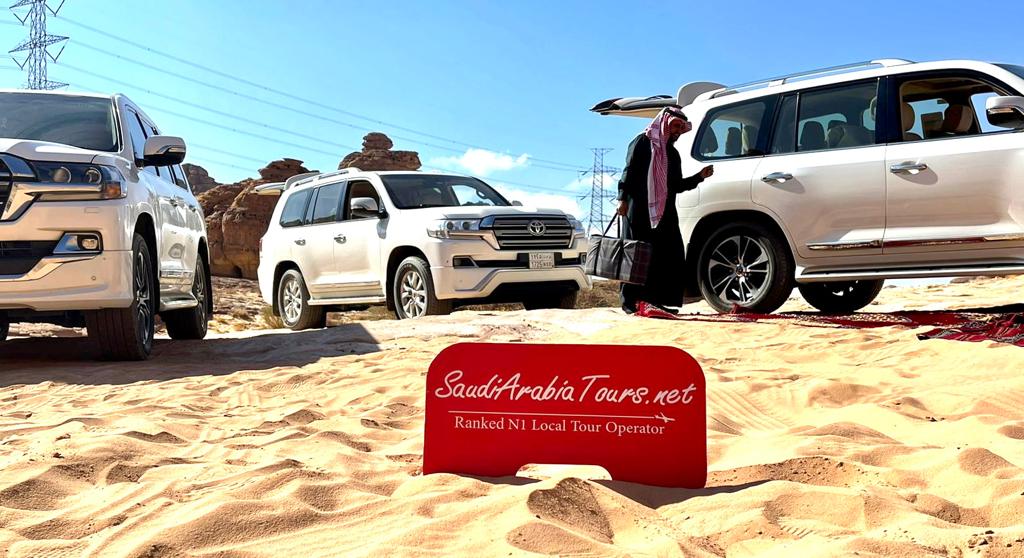
Saudi Arabia Explorer Riyadh, AlUla and Jeddah – 8 Days
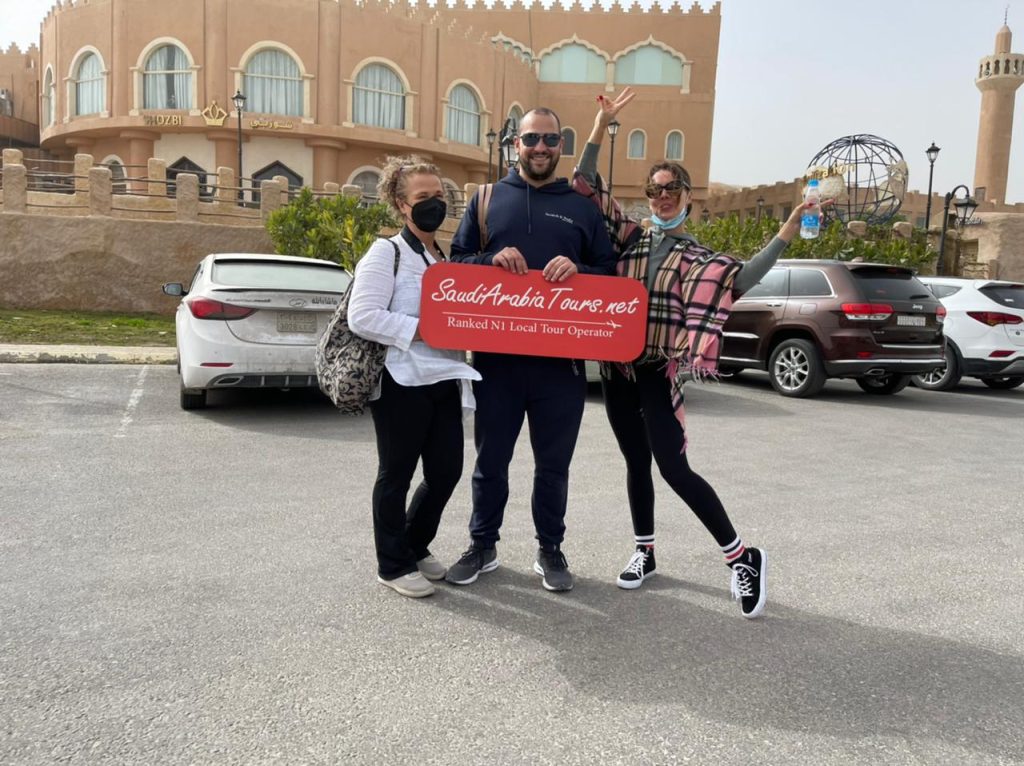
Majestic Tour of Saudi Arabia – 10 Days
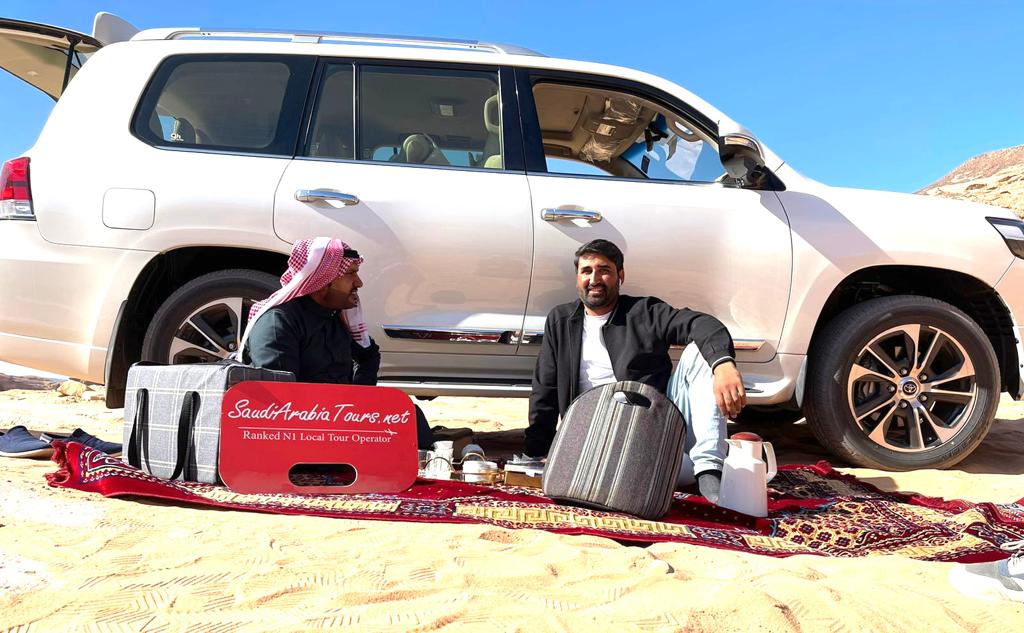
How Good are Saudi Arabia Tours?
Saudi Arabia Tours prides itself on being the best travel agency in Saudi Arabia as proven by our numerous positive reviews.
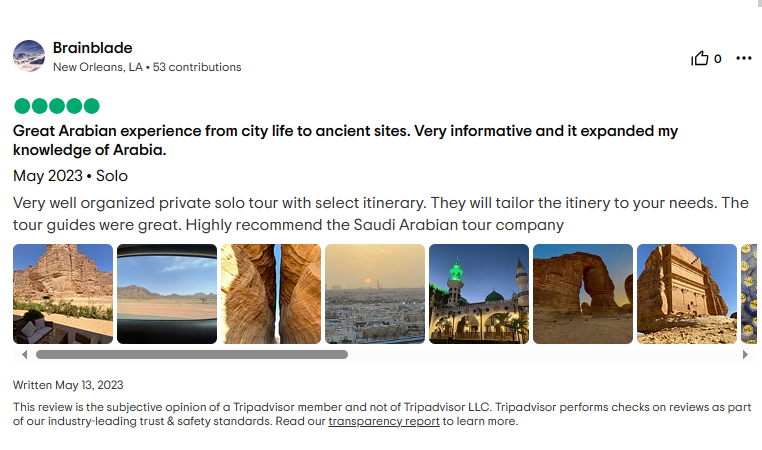
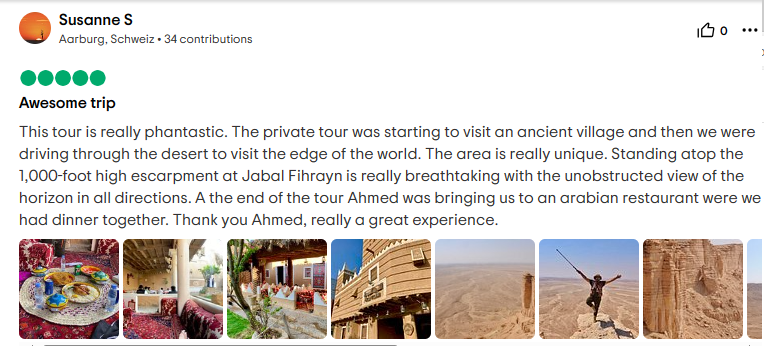
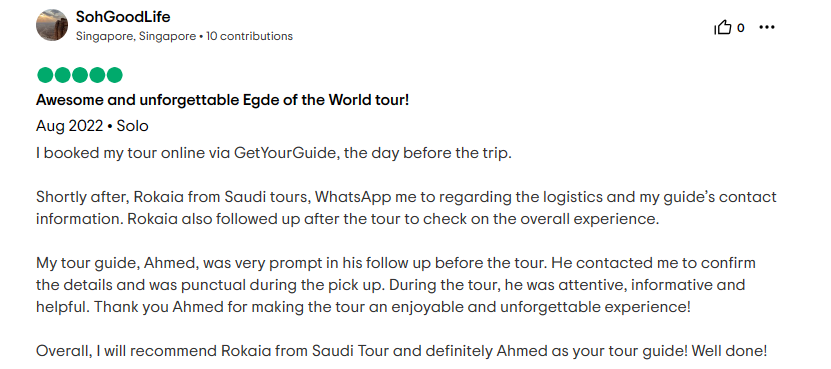
Frequently Asked Questions?
Is Saudi Arabia safe for tourists?
Tourists have been visiting Saudi Arabia and Saudi Arabians have a well-earned reputation for warmth and kindness toward visitors. Saudi Arabia cities are generally very safe, especially in areas where tourists frequent.
How to get a Saudi tourist visa?
Applying for a tourist visa to Saudi Arabia is easy. If you are from one of the 49 eligible countries, you can apply through the eVisa website. Holders of US, UK, or Schengen visas can apply for the visa upon arrival. Saudi Arabia is opening its doors to the world through its new tourist visa. Visitors will have the chance to discover and experience the warm hospitality of the Saudi people, the rich heritage, the vibrant culture, and Saudi Arabia’s diverse and breathtaking landscapes. The visa will be a one-year, multiple-entry visa, allowing tourists to spend up to 90 days in the country.
Are non-Muslims allowed in Saudi?
Non-Muslims can travel to all cities in Saudi Arabia except Medinah and Mekkah, Not allowed to non-Muslims to enter Mecca and Medinah.
Can I wear jeans in Saudi Arabia?
Both men and women are asked to dress modestly in public, avoiding tight-fitting clothing. Women should cover their shoulders and knees in public.
Contact us for more information on:
saudiarabiatours.net@gmail.com
Address: Head Office Olaya St, Riyadh 12213, Saudi Arabia.
If you are booking and taking the tour within 24 hours, or have an urgent request, call us on
Cell/whatsapp : +966558018938 For more info please visit Saudi Arabia Tours
